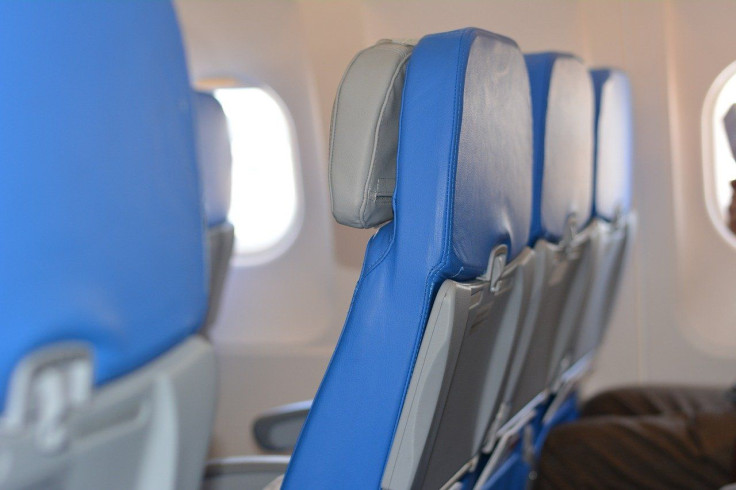Banning Middle Seats On Airplanes Could Decrease On-Flight Risk For Coronavirus, Says Study
KEY POINTS
- Banning middle seats on airplanes could further minimize coronavirus risk during a flight
- From a risk ratio of one in 4,300, banning middle seats lowers it to one in 7,700
- The study looks at the coronavirus infection risks linked to full flights
It is possible to minimize on-flight coronavirus risk if airlines eliminate the middle seat on planes, a recent study suggests.
The research from the Massachusetts Institute of Technology has suggested the possibility of cutting the already low on-flight coronavirus infection risk even more by eliminating the airplane's middle seats. The study, which is yet to be peer-reviewed, puts the risk of contracting the deadly virus from passengers nearby on a full flight at around one in 4,300. The findings show the risk ratio is further reduced to one in 7,700 when the middle seat is empty.
In the research paper, titled "Covid-19 Risk Among Airline Passengers: Should the Middle Seat Stay Empty?", award-winning MIT statistician Arnold Barnett wrote that the calculations do show a measurable reduction in coronavirus risk when the airplane's middle seats are intentionally kept open. The MIT statistician also notes that it is unclear whether the risk of contracting the virus during a flight is any higher compared to the risk associated with routine activities during the pandemic.
The paper looks at the coronavirus infection risks linked to full flights since airlines have once again resumed their activities in booking planes to full capacity after months of grounding flights or leaving middle seats vacant because of the pandemic.
"The airlines are setting their own policies but the airlines and the public should know about the risk implications of their choices," Barnett told ZDNet.

The study was conducted based on estimations that all passengers were wearing masks, which lowers risk down to around 82%. The risk estimates, however, do not take into account the likelihood of infection during boarding or leaving the plane, as well as from contagious passengers who walk down the plane aisle on their way to the lavatory, or within the toilet itself.
Barnett adds that coronavirus mortality risks to uninfected passengers are higher than those with plane crashes.
According to reports, United and American Airlines have resumed booking their middle seats from July 1. Alaska Airlines and JetBlue announced the ban on middle seats will run only through the end of July. Southwest and Delta, on the other hand, said they will continue the ban until September.
© Copyright IBTimes 2024. All rights reserved.





















